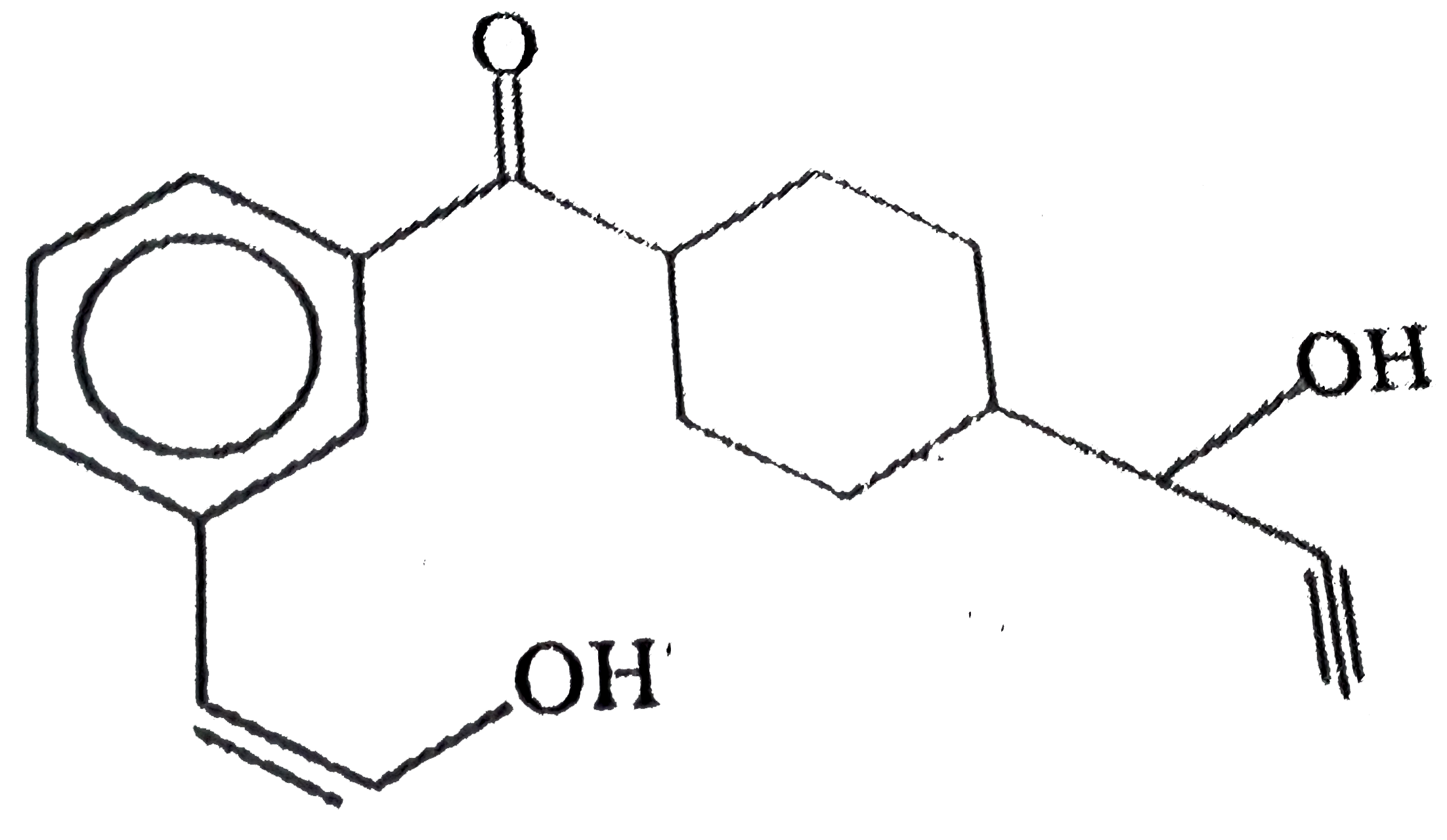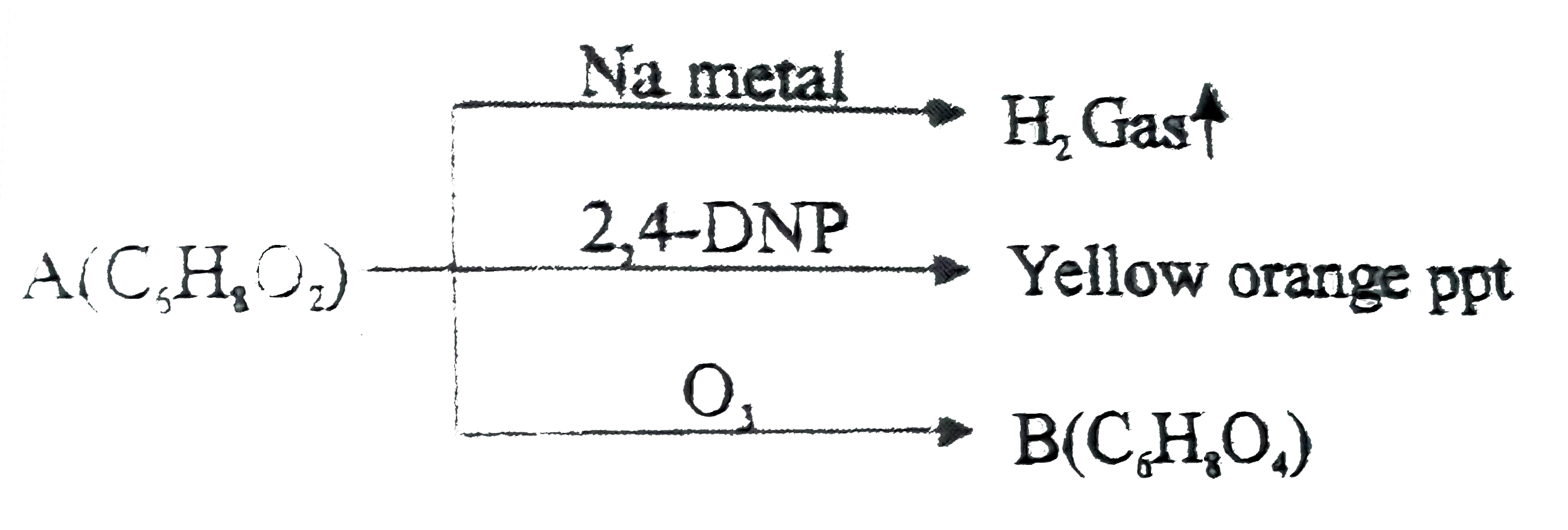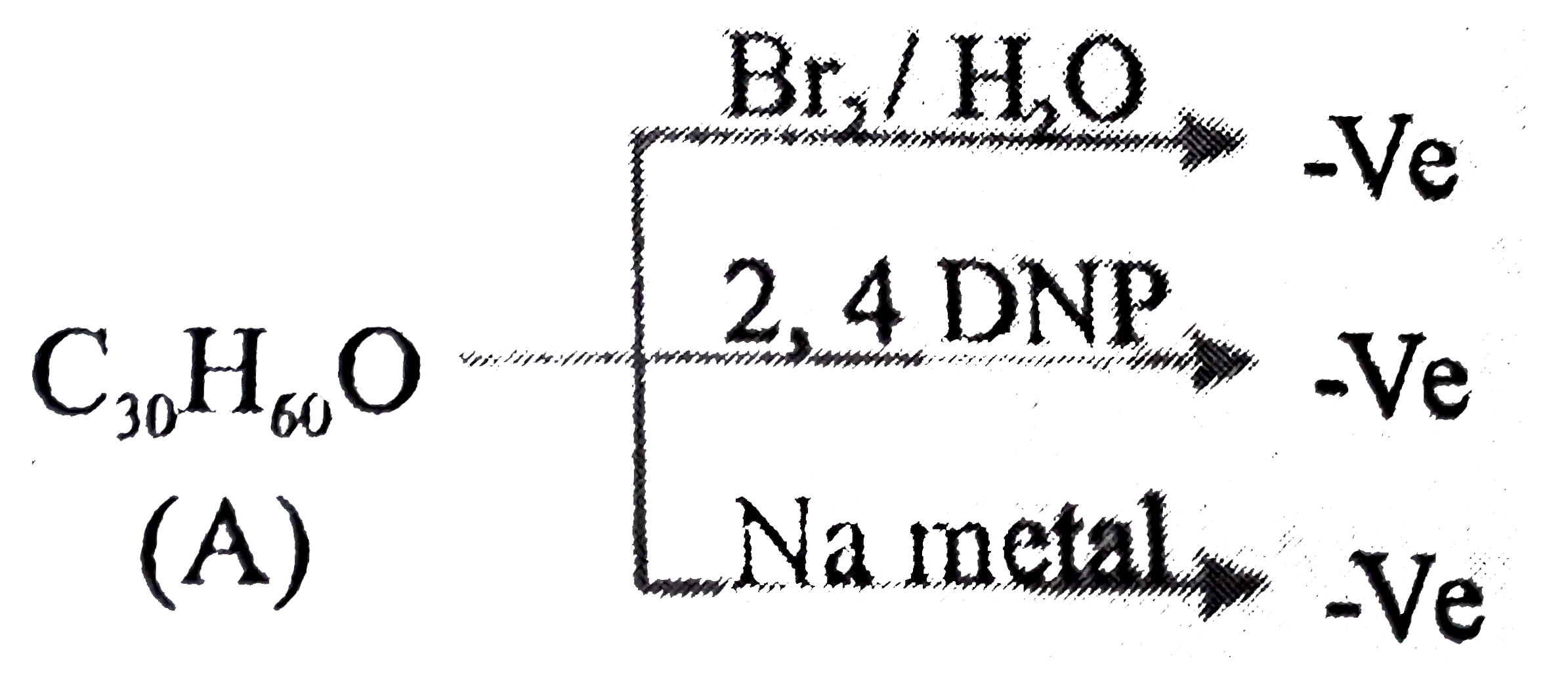Complete Solutions to SCQ_TYPE of chapter PRACTICAL ORGANIC CHEMISTRY of Class 12 book with complete answers and questions
| Class 12 | CHEMISTRY |
| Chapter | PRACTICAL ORGANIC CHEMISTRY |
| NARAYANA | SCQ_TYPE |
| Number Of Questions | 47 |
| Academic Year | 2023-24 |
Which of the following compounds will answer Lassaigne's test for nitrogen.
View SolutionThe molecular mass of an organic compound which contains only one nitrogen atom can be
View SolutionWhich of the following will give Lassaigne's test for nitrogen
View SolutionAn organic compound having carbon, hydrogen andsulphus contsains `4%` of sulphur. The minimum molecular weight of the compound is
View SolutionWhen `0.32g` of a compound is heated with conc. `HNO_(3)` and `BaCl_(2), 0.932g BaSO_(4)` is obtained. The percentage of sulphur in the compound is
View SolutionThe oxygen is estimated in the organic compound by
View SolutionThe percentage composition of a compound `C=90%` and `H=10%`. A possible formula of the compounds is
View SolutionThe empirical formula of a compound is `CH_(2)O` and its molecular mass is 120. The molecular formula of the comound is
View SolutionThe best method for the separation of naphthalene and benzoic acid from their mixture is
View SolutionA mixture of `n`-Butylamine and Petrol can be separated by using
View SolutionWhich of the following compounds does not show Lassaigne's test for nitrogen
View SolutionIn lassaigne's test a blue colour is obtained if the organic compound contains nitrogen. The blue colour is due to
View SolutionWhich of the following organic compound will give red colour in Lassaigne's test?
View SolutionIn the test of sulphur violet colour of sodium thionitroprusside is formed. What is the formula of sodium thionitroprusside.
View SolutionThe % of sulphur in an organic compound whose 0.32 gm. Produde 0.23 gm of `BaSO_(4)` (At. Wt `Ba=137, S=32`)
View SolutionSodium extract is heated with con. `HNO_(3)` before testing for halogens because
View SolutionTo determinent the weight of a halogen in orangic compound, the compound is heated fuming `HNO_(3)` in presence of
View SolutionDetection of the chlorine is possible without preparing sodium extract in
View SolutionDuring the testing for phosphorus in organic compounds, a yellow solution or precipitate is formed due to the formation of
View SolutionIn Lassaigne’s test, the organic compound is fused with a piece of sodium metal in order to
View SolutionIn the Lassaigne's test for the detection of nitrogen in an organic compound, the appearance of blue coloured compound is due to
View SolutionIn the Lassaigne’s test, the blood red colouration is due to the formation of
View SolutionIn Lassaigne's test for nitrogen the blue colour is due to the formation of
View SolutionIn Kjeldahl's method, nitrogen present is estimated as `:`
View SolutionThe percentate of sulphur in the organic, when `0.2595g` of a sulphur containing organic compound in a quantitative analysis by Carius method yielded `0.35g` of barium sulphate is
View SolutionIf `0.228 g` of silver salt of dibasic acid gabe a residue of `0.162 g` of silver on ignition then molecular weight of the acid is
View SolutionIn Carius tube the compound `ClCH_(2)-COOH ` was heated with fuming ` HNO_(3) " and " AgNO_(3)`.After filtration and washing,a white ppt.was formed
The ppt. is
View SolutionLassaigne's test for the detection of nitrogen fails in
View SolutionThe compound that does not give a blue colour in Lassaigne's test is
View SolutionThe Lassaigne's extract is boiled with dil. `HNO_(3)` before testing for halogens because
View SolutionIn Carius tube the compound `ClCH_(2)-COOH ` was heated with fuming ` HNO_(3) " and " AgNO_(3)`.After filtration and washing,a white ppt.was formed
The ppt. is
View SolutionIf 0.24 g of a volatile liquid upon vaporization gives 45 ml of vapours at NTP.What will be the vapour density of the substance ? (Density of `H_(2) =0.089 gL^(-1))`
View SolutionIn sodium fusion test of roganilc compound, the nitrogen of a organic compound is converted into [If only `C,H,N` are present
View SolutionWhich of the following will give blood red colour with `FeCl_(5)` in sodium extract?
View SolutionSulphide ions react with `Na_(2) [Fe(NO)(CN)_(5)]` to form a purple coloured compound `Na_(4)[Fe(CN)_(5)(NOS)]`. In the reaction, the oxidation state of iron:
View SolutionWhich of the following will not give test for `N` in sodium extract?
View SolutionWhich of the following compounds, when heated with `HNO_(3)` (conc), cooled and then treated with `AgNO_(3)` a white pot, is formed. The compound can be

View SolutionA substance was known by its mode of synthesis to contain `10` atoms of carbon per molecule along with unknown number of atoms of chlorine, hydrogen and oxygen. Analysis showed 60.5% carbon 5.5% hydrogen, 16.10% oxygen and 17.9% chlorine. The molecular formula of compound is
View SolutionCompound `A,C_(7)H_(8)O`, is insoluble in water, dilute `HCl`, and aquenous `NaHCO_(3)`, it dissolves in dilute `NaOH`. When `A` is treated with bromine water is is converted rapidly into a compound of formula `C_(7)H_(5)Obr_(3)`. The structure of `A` is
View SolutionCompounds I and II can be distinguished by using reagent.
(I) -4-Amino-2-methylbut-3-en-ol
(II) -4-Amino-2,2dimethylbut-3-yn-1-ol
View SolutionA set of reagents (1 to 8) are successively rected with the following compound

1. `NaHCO_(3)` 2. 2,4, DNP
3. `Na` metal 4. `AgNO_(3)+NH_(4)OH`
5. Fehling's solution 6. `Cu_(2)+NH_(4)OH`
7. `Br_(2)//H_(2)O` 8. `NaNO_(2)+HCl`
THe reagents which give positive test with the given compound are:
View SolutionWhich one of the following will not give white precipitate with ammonical silver nitrate solution
View SolutionWhich of the following alcohols will show positive iodoforms test?
View SolutionThe compound `A` gives following reactions.

It structure can be
View SolutionIn compound `A(C_(30)H_(60)O)` following tests are observed negatively. A can be

View SolutionA mixture of two organic compound gives red coloured precipitate with cuprous chloride and silver mirror on heating with Zn and `NH_(4)Cl` followed by `AgNO_(3) + NH_(4)OH` solution . The mixture contains :
View SolutionGive the correct order of initials `T` or `F` for following statements. Use `T` if statement is true and `F` if it is false.
`X` (molecular formula, `C_(7)H_(6)O_(2))` is an aromatic which solid which liberates colourles, odourless gas on reacting with `NaHoverset(14)(C)O_(3)`
`S_(1):` Only three of the five functional isomers of `X` (including `'X'` itself) will gie positive 2, 4-DNP test.
`S_(2):` The liberated colourless, odourles gas will containng radioactive `.^(14)C`.
`S_(3):` Except `'X'` no other functional isomer will liberate colourles odourless gas with `NaHoverset(14)(C)O_(3)`.
`S_(4):` The DU of higher homolog of `'X'` will be four.
View Solution
SCQ_TYPE questions and complete solutions for chapter PRACTICAL ORGANIC CHEMISTRY of NARAYANA CHEMISTRY (HINGLISH) of Class 12